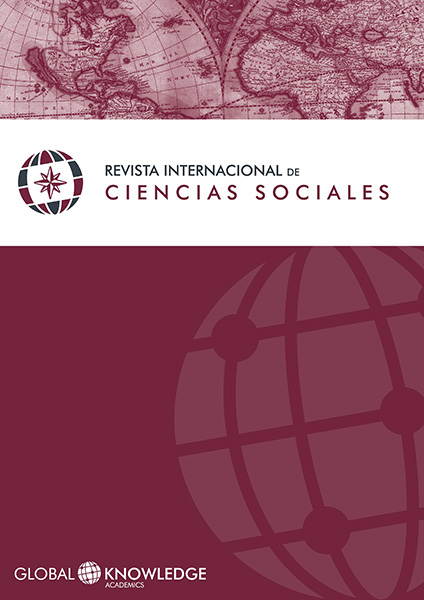Iberian Heritage, Jeitinho and Informal Political Institutions in Brazil
DOI:
https://doi.org/10.37467/gka-revsocial.v7.1486Keywords:
Informal Institutions, Jeitinho, Iberian Heritage, Brazil, CultureAbstract
This paper aims to analyze Iberian influences, especially Portuguese, in the Brazilian political institutions. We understand that the institutions of the Portuguese colonial administration, which existed before the beginning of the colonization itself, were responsible for shaping Brazilian political practices up to the present day, transforming themselves into entrenched cultural values. To explain such factors, we adopt a theoretical framework based on the debate between traditional and modern State, based on Weber's Studies on State and Patrimonialism. We understand that one of the consequences of this historical heritage is the ongoing tension between a formally rational-legal organization and the common use of cordiality and the "Brazilian jeitinho", a Brazilian cultural pattern, as well as tolerance of practices that undermine formal institutions. We consider this practice an informal institution, per Levitsky and Helmke (2006) conceptualization. In order to prove such elements, we adopted a historical and cultural analysis of the Iberian heritage and later analyzed institutional data collected in the 2002 Brazilian Social Survey (PESB 2002)
Downloads
Global Statistics ℹ️
|
608
Views
|
237
Downloads
|
|
845
Total
|
|
References
ADAMEC, Martin. A formação da identidade nacional brasileira: um projeto ressentido. Tese (Doutorado em Ciência Política) – Instituto de Ciência Política, Universidade de Brasília, Brasília, 2014.
ARENDT, Hannah. Entre o Passado e o Futuro. São Paulo: Perspectiva, 2005. 5.ed.
AZARI, Julia R.; SMITH, Jennifer K. Unwritten Rules: Informal Institutions in Established Democracies. Perspectives on Politics, v. 10, n. 01, p. 37-55, 2012. DOI: https://doi.org/10.1017/S1537592711004890
BARBOSA, Lívia. O Jeitinho Brasileiro: A arte de ser mais igual do que os outros. Rio de Janeiro: Elsevier, 2006.
BRINKS, Daniel. The Rule of (Non)Law: Prosecuting Police Killings in Brazil and Argentina In. HELMKE, Gretchen; LEVITSKY, Steven. Informal institutions and democracy: Lessons from Latin America. JHU Press, 2006.
CARVALHO, José Murilo de. Os Bestializados: O Rio de Janeiro e a República que não foi. 3ª Edição, 20ª reimpressão. São Paulo, Companhia das Letras, 2011.
CAMPANTE, Rubens Goyatá. O Patrimonialismo em Faoro e Weber e a Sociologia Brasileira. In: Dados – Revista de Ciências Sociais, Rio de Janeiro, Vol 46, nº 1, 2003. DOI: https://doi.org/10.1590/S0011-52582003000100005
COMPARATO, Fábio Konder. Obstáculos históricos à vida democrática em Portugal e no Brasil. ESTUDOS AVANÇADOS 17 (47), 2003 DOI: https://doi.org/10.1590/S0103-40142003000100015
DAMATTA, Roberto. A Casa & A Rua: Espaço, cidadania, mulher e morte no Brasil. Rio de Janeiro: Rocco, 1997.
DAMATTA, Roberto. A Casa & A Rua. O que faz o brasil, Brasil? Rio de Janeiro: Salamandra, 1984.
DIA, Mamadou. Africa's management in the 1990s and beyond: Reconciling indigenous and transplanted institutions. World Bank Publications, 1996. DOI: https://doi.org/10.1596/0-8213-3431-X
DURKHEIM, Émile. Da Divisão do Trabalho Social. São Paulo: Martins Fontes, 1999.
FREYRE, Gilberto. Casa Grande & Senzala. 51ª ed. São Paulo: Global, 2008.
GREIF, Avner; KINGSTON, Christopher. Institutions: Rules or Equilibria?. In:Political economy of institutions, democracy and voting. Springer Berlin Heidelberg, 2011. p. 13-43. DOI: https://doi.org/10.1007/978-3-642-19519-8_2
HALL, Peter A.; TAYLOR, Rosemary CR. Political science and the three new institutionalisms*. Political studies, v. 44, n. 5, p. 936-957, 1996. DOI: https://doi.org/10.1111/j.1467-9248.1996.tb00343.x
HELMKE, Gretchen; LEVITSKY, Steven. Informal institutions and comparative politics: A research agenda. Perspectives on politics, v. 2, n. 04, p. 725-740, 2004. DOI: https://doi.org/10.1017/S1537592704040472
HELMKE, Gretchen; LEVITSKY, Steven. Informal institutions and democracy: Lessons from Latin America. JHU Press, 2006.
HINDRIKS, Frank; GUALA, Francesco. Institutions, rules, and equilibria: a unified theory. Journal of Institutional Economics, v. 11, n. 03, p. 459-480, 2015. DOI: https://doi.org/10.1017/S1744137414000496
HOLANDA, Sérgio Buarque de. Raízes do Brasil. 26.ed. São Paulo: Companhia das Letras, 2008.
KELLEMEN, Peter. Brasil para Principiantes. São Paulo: Civilização Brasileira, 1964.
NORTH, Douglass C. Institutions, institutional change and economic performance. Cambridge university press, 1990. DOI: https://doi.org/10.1017/CBO9780511808678
PEJOVICH, Svetozar. The effects of the interaction of formal and informal institutions on social stability and economic development. Journal of Markets and Morality, v. 2, n. 2, 1999.
PESB, Pesquisa Social Brasileira, 2002.
QUEIROZ, Maria Isaura P. de. O mandonismo local na vida política brasileira: Da Colônia à Primeira República. São Paulo: Instituto de Estudos Brasileiros, 1969.
RODRIGUES, Leandro do Nascimento. Os caminhos da identidade nacional brasileira: A perspectiva do etnosimbolismo. 2013. 260 f. Tese (Doutorado em Ciência Política) – Instituto de Ciência Política, Universidade de Brasília, Brasília, 2013.
ROHDE, David W. Studying Congressional Norms: Concepts and Evidence. In: Congress & the Presidency: A Journal of Capital Studies. Taylor & Francis Group, 1988. p. 139-145. DOI: https://doi.org/10.1080/07343468809507942
SCHWARCZ, Lilia Moritz. Brasil: Uma Biografia. São Paulo: Companhia das Letras, 2015.
SCHWARTZ, Stuart B. Burocracia e e sociedade no Brasil colonial: O Tribunal Superior da Bahia e seus desembargadores, 1609-1751. São Paulo: Companhia das Letras, 2011.
WEFFORT, Francisco. Espada, cobiça e fé: As origens do Brasil. Rio de Janeiro: Civilização Brasileira, 2012.
Downloads
Published
How to Cite
Issue
Section
License
Those authors who publish in this journal accept the following terms:
-
Authors retain copyright.
-
Authors transfer to the journal the right of first publication. The journal also owns the publishing rights.
-
All published contents are governed by an Attribution-NoDerivatives 4.0 International License.
Access the informative version and legal text of the license. By virtue of this, third parties are allowed to use what is published as long as they mention the authorship of the work and the first publication in this journal. If you transform the material, you may not distribute the modified work. -
Authors may make other independent and additional contractual arrangements for non-exclusive distribution of the version of the article published in this journal (e.g., inclusion in an institutional repository or publication in a book) as long as they clearly indicate that the work was first published in this journal.
- Authors are allowed and recommended to publish their work on the Internet (for example on institutional and personal websites), following the publication of, and referencing the journal, as this could lead to constructive exchanges and a more extensive and quick circulation of published works (see The Effect of Open Access).













